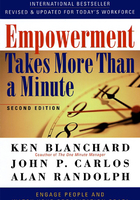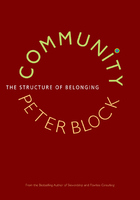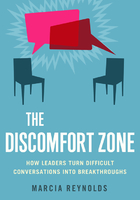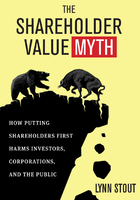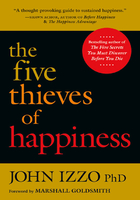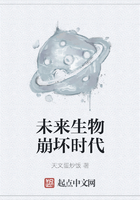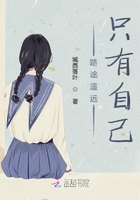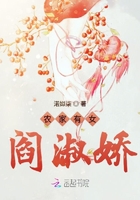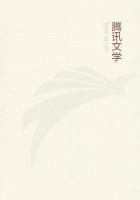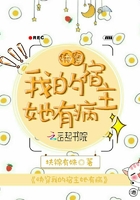The Problem of Overconsumption
Following a Green Deen and choosing to practice the religion of Islam while affirming the connection between faith and the environment begins, of course, through prayer. From there you can reflect on your relationship with God and with the planet and how you live in it.
I know it sounds funny, but let's begin with thinking about trash, what creates it, and the processes of consumption and overconsumption. Think of your first recollection of waste. When was the first time you became aware of trash? Each time I pose this question to an audience, the responses usually start out slow as people begin to work the idea over in their heads. I once put this question to a group of young Muslims in New York City—see which of their responses resonates for you.
For Chris, it was when he was a child. Chris and his friends would collect aluminum cans and newspapers for money. They got $3 a pound for cans and $1 a pound for newspapers. He remembers learning for the first time that trash had value. Every day people work to move our trash, and governments pay to dump trash.
For Rami, it was as he was walking to the subway in Queens on his way to work one Monday morning. It was garbage pickup day, and there were stacks and stacks of garbage in front of every building. In the heat and humidity, the smell was unbearable. Rami threw up on his clothes and had to return home to change. He remembers thinking, “I'm sure we can do better than this.” Of course we can, but we first have to know how things have been done in the past.
For Sadaf, it was seeing garbage bins on the Brooklyn Bridge overflowing with plastic bottles. It was a warm day, and a few feet away a man was selling bottled water. The vendor's customers were so thirsty, he couldn't keep up with their consumption, and all the empty bottles went into the trash.
For Jameela, it was when she was a child visiting Throggs Neck in the Bronx. She remembers seeing dead horseshoe crabs in the garbage can and saying to her dad, “This isn't garbage.”
For Taha, it was seeing families picking through a massive pile of garbage in Karachi. “In Pakistan,” he said, “poor folks depend on garbage for their daily bread.”
For Roxanne, it was when she was growing up on the Caribbean island of Jamaica. She recalls her aunt throwing banana peels and eggshells into one area for use in feeding their livestock.
For Sam, it was visiting family in Egypt as a four-year-old and seeing people burning garbage in the street. The smell overwhelmed him, and he remembers thinking, “Wow, garbage in America just disappears.”
When did you first become aware of trash? Ask yourself that question, then turn to someone you know and ask them the same question. Share how your parents educated you about trash—share the good, the bad, and how that perspective has changed.
Trash Comes from What We Consume
Overconsuming can blind us to our role as stewards of the Earth—what in Islam we call being the khalifah. Being protectors of the planet means checking our consumption habits. We consume things every day—by eating, drinking, cleaning, traveling, buying new possessions, and by using the planet's resources in a multitude of ways. Far too often our constant consumption creates constant waste. Rising mounds of trash result in increased toxicity in the land, the air, the oceans and riverways, and also in our bodies. After all, we are all part of the Oneness of God and His creation (tawhid), the first principle of a Green Deen, so what we do to the planet is a reflection of what we are doing to ourselves.
But what is our role as stewards of the Earth? Some believe our covenant with God (amana) means we are Earth's superior beings and that we therefore have the right to do what we want with the Earth—to extract what we want from it, to use it as we desire without regard for the effect of our consumption on the planet and the rest of its beings. Under this belief, industries pull fossil fuels out of the ground and destroy mountaintops to extract coal—with devastating effects on the natural ecology of these areas.
Others believe that amana means we are responsible for taking care of the planet, safeguarding it, and seeing it as “on loan” from our Creator. They believe that we have been given this brief moment on Earth and that we should leave the Earth better than we found it. Islam advances the latter belief. In the Qur'an, Allah tells Muslims that He blessed humanity with the natural world:
It is Allah who has created the heavens and the earth and sends down rain from the skies, and with it brings out fruits wherewith to feed you; and the rivers (also) has he made subject to you. And He has made subject to you the sun and the moon, both diligently following their courses; and the Night and the Day has He (also) made subject to you. (Qur'an 14:32–33)
I reflect on these signs (ayat) and realize how the seas, the rivers, the sun, and the moon do in fact serve us every day. They quench our thirst, they allow us to travel; they give us heat and light, time to sleep, and time to work. But Allah also advises:
And He gives you of all that you ask for. But if you count the favours of Allah, never will you be able to number them. (Qur'an 14:34)
This ayat suggests that our understanding of natural resources as limited may be false. Perhaps what's limited is our understanding of how best to use these resources—not wasting them by overconsumption, not polluting them with the by-products of our overconsumption, but rather living in balance with nature (mizan) so as to sustain Earth's resources for all time. We have to change the narrative from one of scarcity to one that emphasizes that we have all we need, and that the story is about what can we do to make sure what natural resources are available are there for the present and far into the future.
The Prophet Muhammad (peace be upon him) said, “The world is beautiful and verdant, and verily God, be He exalted, has made you His stewards in it, and He sees how you acquit yourselves.”[1] The idea here is that as stewards, we will be judged according to our actions—according to whether we maintain or destroy the beauty of the Earth.
Greening Your Deen Is a Political, Economic, and Religious Imperative
As we green our everyday consumption practices, we also need to consider the political, economic, and religious dimensions of our use of the planet's resources. Here in America, we live under the guided political and economic systems of democracy and free-market capitalism. Although these systems have provided us with an amazing standard of living, they have in some ways proved inadequate for the task now before us as stewards of the Earth. In this century, it falls to us to understand the limitations of these systems so we can be open to and embrace broader and more inclusive systems that respect the Oneness of all creation (tawhid). In learning how to be true stewards of the Earth, we must commit to making our political and economic systems work better in defense of the planet.
The politics of consumption are the assumptions about how power and status affect what we consume. For example, one assumption of consumption is that it provides the fuel for development, financial prowess, and economic gain and is therefore politically appropriate. Another assumption is that consumption can assault the natural world and is therefore politically inappropriate.
Our attitudes about consumption are often affected by the politics of consumption, depending on where we stand. Is consumption allowing us a better life, more liberty, and the pursuit of happiness? Or is consumption causing us to work long hours without enough pay? What remains uncontested is that our current attitudes about consumption are resulting in overconsumption—which is wreaking havoc on the planet.
The call to protect our planet comes from both the political right and the political left. Democrat Al Gore's Earth in the Balance and Republican Newt Gingrich's A Contract with the Earth each seeks to show us the harmful consequences of our consumptive actions. Both agree that we have to do something to protect the planet.
Our patterns of consumption and overconsumption have done the planet great injustice. Islam, like all religions, commands us to move toward what is just (adl) and away from what is unjust. Moving toward justice requires understanding the Earth's delicate balance (mizan)—a balance created by God but entrusted to us (amana). This balance is purposeful.
Allah says in the Qur'an:
We created not the heavens, the earth, and all between them merely in (idle) sport. We created them not except for just ends. (Qur'an 44:38–39)
Overconsumption on a broad scale—manifesting as overfishing, factory farming, and growth by any means necessary—has led to depleted oceans, nutritionless food, and nonstop expansion of development and markets, all unbalancing the Earth.
Overconsumption also steers us away from the Islamic principle of the Oneness of Allah and His creation (tawhid). The Prophet Muhammad (peace be upon him) reminded humanity that the Oneness of creation means that benefit for one is benefit for all, saying, “There is a reward in doing good to every living thing.”[2] Similarly, harming one thing is like harming everything.
We are quite used to taking from the bounty God has provided—we take this bounty for granted, and contemporary marketing tells us that our value as human beings will increase if we reach for items of high economic value. As a consequence, we use so many things not because they bring any real or tangible benefit to our lives, but rather because they make us feel relevant.[3]
Capitalism—and for that matter, socialism, and all other economic or human-derived systems of organization and government—also disconnect humans from the natural world. These systems reduce us to units of production—we become relevant only by what we can create.
In contrast, Islam teaches that we come with intrinsic value: We do not need to produce or acquire anything to be valuable. We are innately valuable, from birth to death. We all have a noble beginning and a noble end. Our soul has value because it is made by God. And when we recognize our own value and nurture the relationship we have with the Creator, we can begin to take better care of ourselves and see ourselves as a beautiful part of creation. We are also a sign (ayat) of Allah, and as one of his beautiful creations, we do not need to consume or create to have worth. Our worth is that Allah has made us. This is the spiritual antidote to the big lie of consumption: that we need things to create or consume to be relevant.
The by-product of a deeper understanding of oneself is consuming less and gaining a better environment to connect with other humans, the natural world, and Allah. Consuming less, even though you might have the means to consume a great deal, is a choice that should enable deeper relationships with the people you are close to. It is a choice that will allow you time to get your hands in dirt, start a garden, or walk more often, and consuming less is a choice that can lead you to have increased time and more focus when you go to worship God.
The unfortunate by-products of overconsumption and overproduction are pollution and climate change. The Qur'an recognizes the human element in these consequences:
Corruption has appeared on the land and in the sea because of what the hands of humans have wrought. This is in order that we give them a taste of the consequences of their misdeeds that perhaps they will turn to the path of right guidance. (Qur'an 30:41)
Many Islamic scholars concerned about the environment have cited this particular ayat, relating “corruption” to pollution. Landfills are filling up with garbage and discarded goods.[4] Our overconsumption of fossil fuels is releasing great amounts of carbon dioxide into the atmosphere, greatly increasing the “greenhouse gases” that trap heat in the atmosphere, resulting in the surface warming of the planet and oceans.
If we were to adopt policies that maintain economic growth but also reduce carbon emissions and the waste we create, we'd be praising God and protecting the planet. Humans are part of the problem, and we must be part of the solution.
In the Holy Qur'an, this last point is clear:
But waste not by excess, for Allah loves not the wasters. (Qur'an 7:31)
We have been blessed by God with a bountiful planet that can suffice for all we need. One day we will be held accountable for how we have managed it and ourselves. A system based on waste and excess has turned us from stewards to dominators. This has resulted in oppressive systems and institutions across the world that have subjugated and exploited people. This oppression has left people emotionally damaged—and this damage is being used to promote consumption. People find solace in material goods. They buy things to feel better about themselves or to prove something about themselves. Instead of improving relationships with fellow humans, people create relationships with things that money can buy.
At its core, Islam is about developing a relationship with God. Islam then promotes relationship between people—families, neighbors, anyone. By putting at the forefront relationship-building between other people, Islam tries to help humans heal from the oppressions they have suffered and deemphasizes materialism. Ultimately, just as we do not need to create to be relevant, nor do we need to consume to be relevant. Islam brings us into a state of balance (mizan) so that we can come to see the role of steward (khalifah) as part of a more mindful practice—a practice in which we see our time on Earth as an opportunity to leave the planet better than we found it.
Ask yourself this question: Has there ever been a time when you measured your own value by what you bought or consumed?
notes:
[1]. Sahih Muslim, trans. Abdul Hamid Siddiqi (Beirut: Dar Al Arabia, n.d.), book 10: hadith 10.
[2]. Sahih Al-Bukhari, trans. Muhammad Muhsin Khan (Ankara: Islamic University, Al Medina Al Munauwara, n.d.), book 10: hadith 10.
[3]. For these concepts I am indebted to Annie Leonard's The Story of Stuff: How Our Obsession with Stuff Is Trashing the Planet, Our Communities, and Our Health—and a Vision for Change (New York, Free Press, 2010), www.storyofstuff.com, and to Seyyed Hossein Nasr's Man and Nature: The Spiritual Crisis in Modern Man (Chicago: ABC International, 1997).
[4]. Lamont C. Hempel, Environmental Governance: The Global Challenge (Washington DC: Island Press, 1996), 54.

